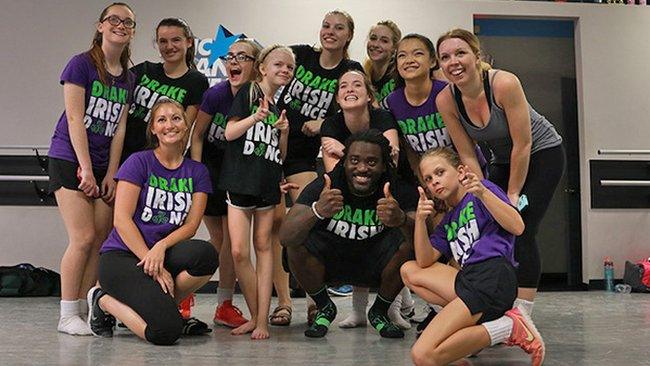World Irish Dancing Championships return after Covid cancellations
- Published
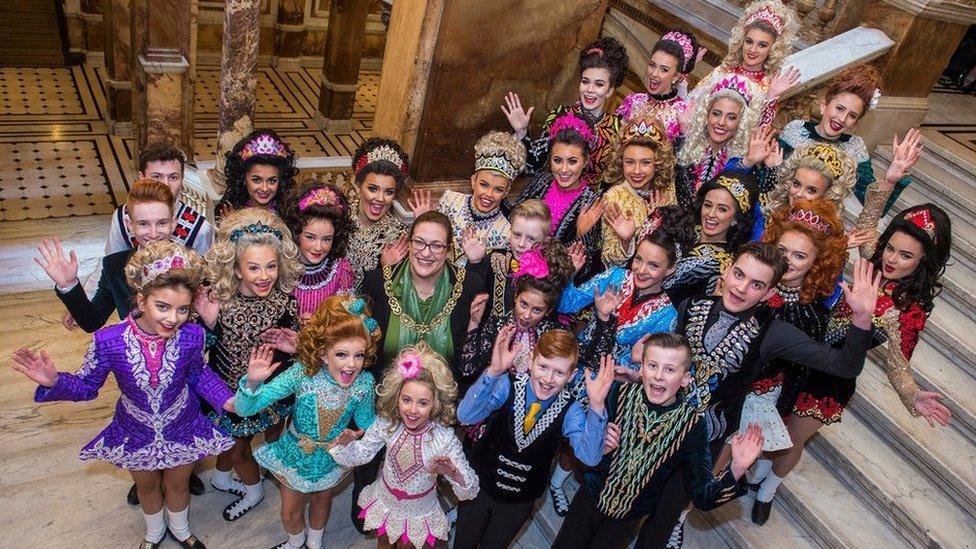
Irish dancers posing in their colourful costumes during a previous competition
After an unexpected gap of three long years, some of the most talented Irish dancers are finally getting a chance to compete for a world title.
Belfast is hosting the 50th World Irish Dancing Championships on Sunday, with more than 3,500 competitors taking part in the week-long competition.
The contest was cancelled in 2020 and 2021 due to the Covid-19 pandemic.
It robbed many dancers of the chance to perform on the biggest stage at the height of their competitive careers.
But this year, the contest is back with a bang as organisers host the prestigious event for the 50th time.
The colourful competition is staged by An Coimisiún le Rincí Gaelacha (the Commission of Irish Dancing) which is the biggest and oldest governing body of Irish dancing worldwide.
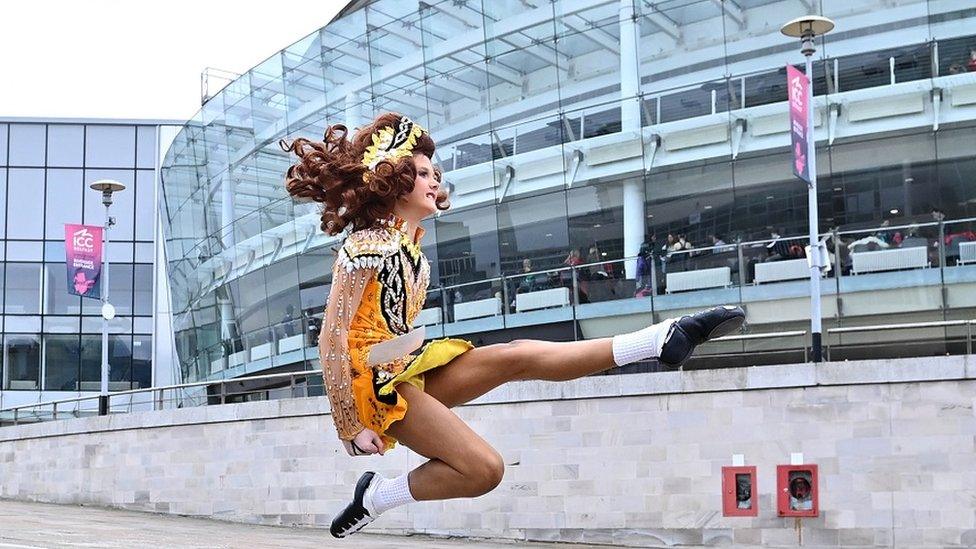
"It's exciting for the children to have an opportunity to be on the big stage again," says Orfhlaith Ni Bhriain, vice-chairwoman of the CLRG.
The pandemic seriously disrupted all aspects of Irish dancing - for both young competitors and their teachers, she adds.
"It really hit the Irish dancing community hard because most people were restricted to online classes on Whatsapp or Zoom or social media platforms for long periods of time," explains Ms Ní Bhriain.
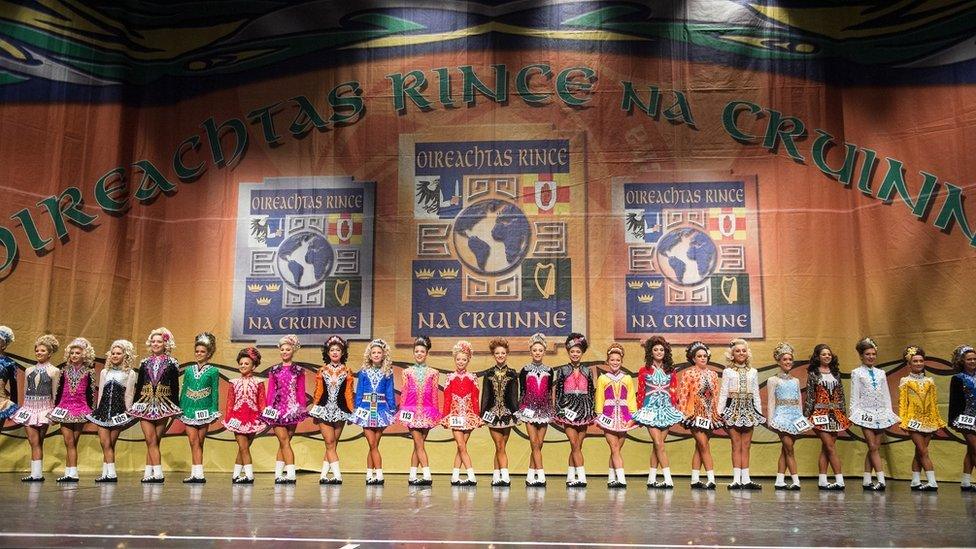
Oireachtas Rince na Cruinne is the Irish phrase for World Irish Dancing Championships
"The difficulty with that is, you're trying to manage children rehearsing in different contexts that you wouldn't be used to, without the correct flooring maybe or without the proper shoes.
"So there were a lot of complications that we had to overcome but people were really good, they stuck with it and they pushed through."
'The Olympics of Irish dance'
At its very top levels, Irish dancing is a highly competitive and physically demanding activity which requires athleticism, dedication and many years of practice.
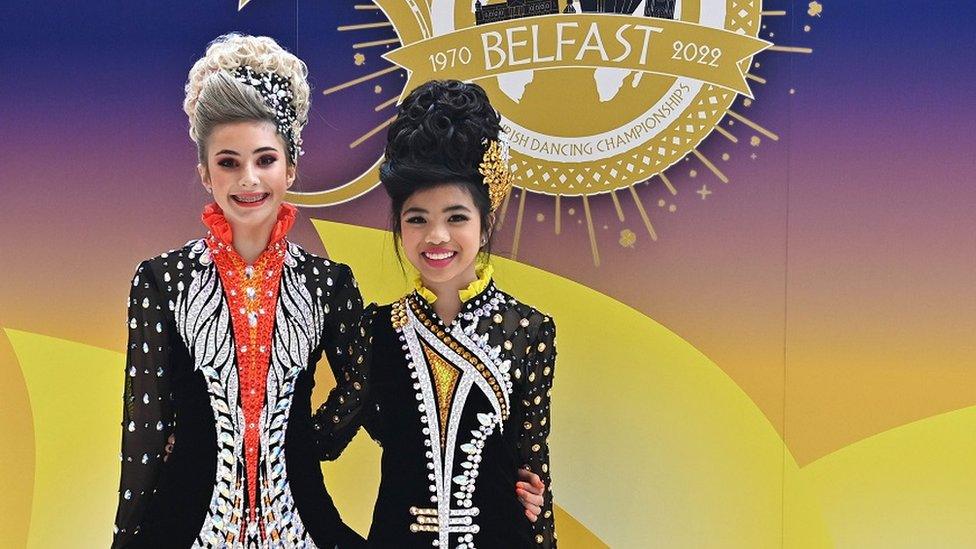
Young dancers are looking forward to showing off their skills after a pandemic pause
Ms Ní Bhriain says that in order to dance at the World Championships, competitors first must qualify through national heats, so "getting to this level is an achievement in and of itself".
For some younger age groups who qualified back in 2020, this will be their first opportunity to compete.
Dancing through the decades
To mark their 50th show, the commission is delving into its archives to produce a historical display of photographs and memorabilia chronicling five decades of competition.
The CLRG says the event has grown from "humble beginnings" into a truly global competition which it describes as "paramount to the Olympics of Irish dance".
The very first World Irish Dancing Championships were held in the Mansion House in Dublin in 1970.
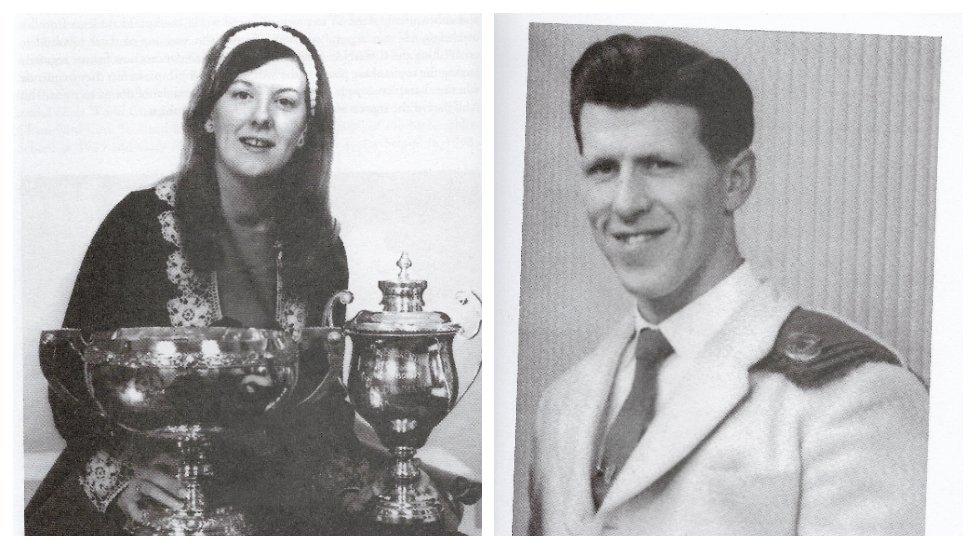
Ruth Pentony and Dan Armstrong were the first World Champions in 1970
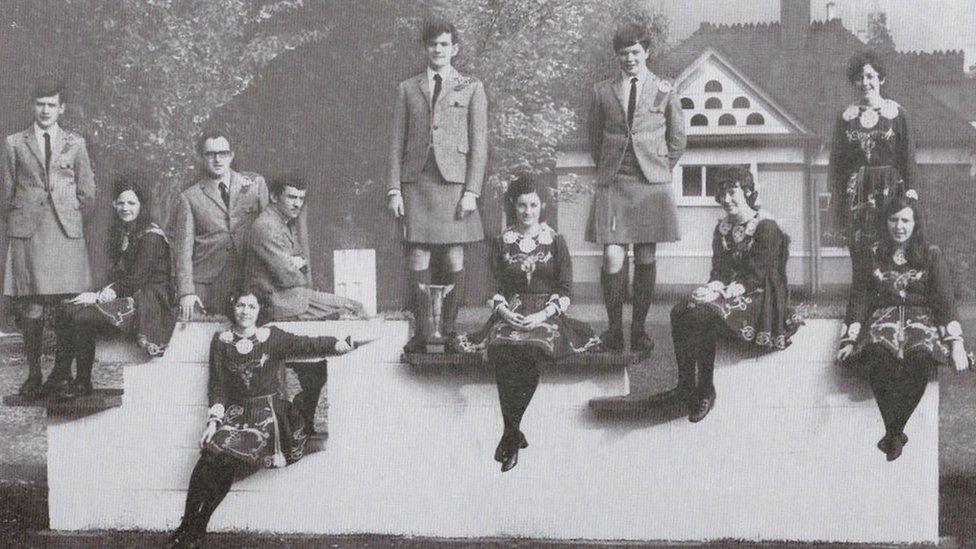
The winners of 1970 Senior World Ceilí Championship and 1971 Senior Figure Dance
Since then the show has grown, touring various cities across Ireland, the USA, Canada and Great Britain.
Competitors from more than 20 countries have registered to attend the 2022 championships in Belfast's Waterfront Hall and will be cheered on by an estimated 20,000 spectators.
The event can raise millions in tourist revenue for the host cities, with dancers and their families spending considerable sums on hotel accommodation and hospitality.
"The last time it was in Dublin in 2017, you were looking at a revenue of about 14 million euros to the host city," says Ms Ní Bhriain.
"It takes a village to rear an Irish dancer, between the costumes and the coaches and the fitness and the nutrition."
She argues there is now an "entire industry" built around Irish dancing from which Northern Ireland's economy will benefit.
"Droves of people are converging on Belfast and will spend some time and money in the hinterland and that's really good for tourism."

'I thought, will I ever return to the stage?'
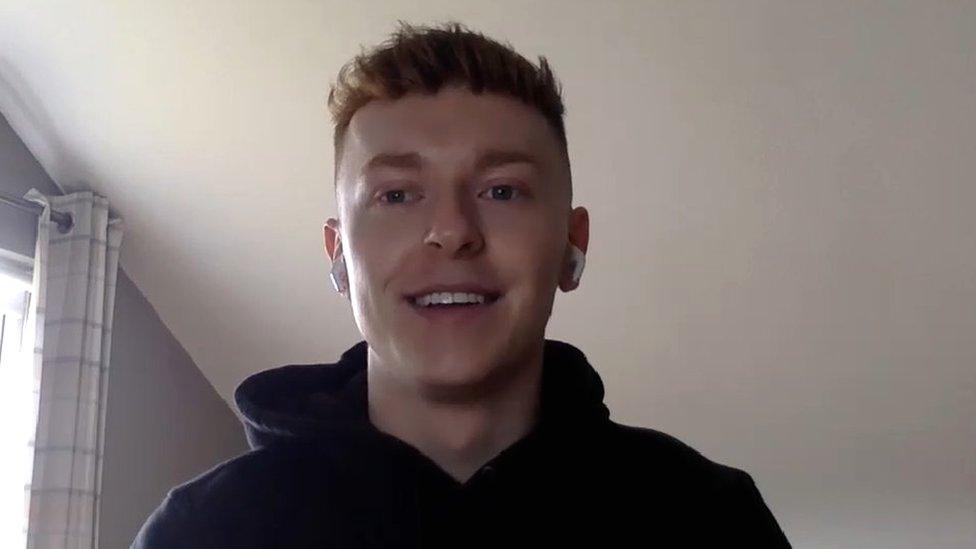
Gareth O'Connor won the Under-16 World Champion Irish Dancer title in 2017
Among the thousands of young people taking part in this year's competition is 20-year-old Gareth O'Connor, a former world champion hoping to add to his trophy collection.
He began taking lessons in his home village of Dromintee, County Armagh, when he was seven years old, which he says made him something of a "late starter" in the Irish dancing community.
Since then, his impressive dancing skills have allowed him to travel around the globe, both as a competitor and as a professional performer.
His tours so far have included a stint with Michael Flatley's Lord of the Dance troupe in Taiwan and competitions in Florida, Boston, North Carolina and Montreal.
However, lockdown proved to be a "frustrating" time and he even considered giving up his dream of a career in dancing.
"It's been hard to stay motivated... being on Zoom was really, really tough," he says.
"The majority of dancers don't have the major facilities at home that you would have when you're in a studio.
"To get that run out with your coaches is far different than when you're at home practicing by yourself."
Gareth usually practises for up to 15 hours a week in order to maintain his skills and he also works out in the gym to improve his stamina and fitness.
But keeping to a strict training regime when there was no clear timetable for rescheduled championships was difficult for the Queen's University business management student.
"At one point I probably thought: 'Is it ever going to happen and will I ever return to the stage?'"
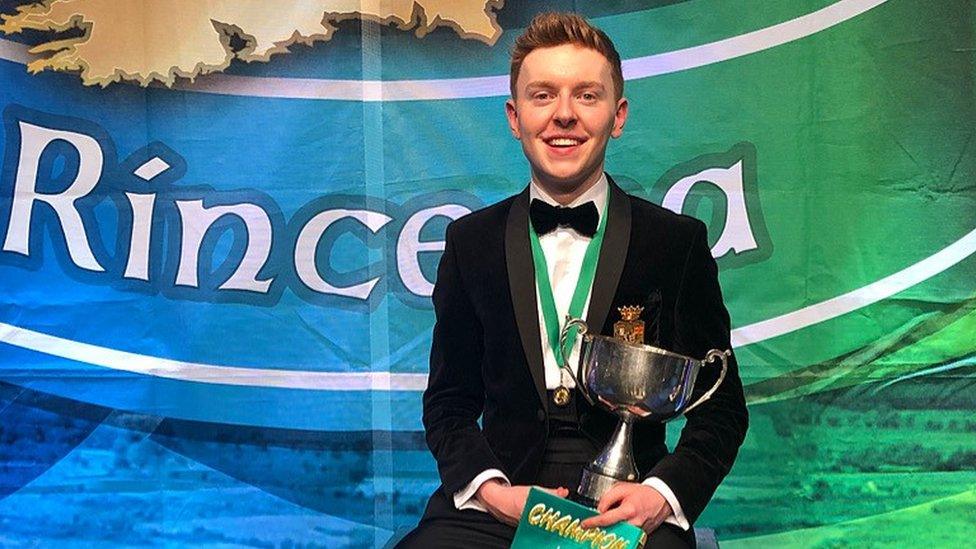
Gareth O'Connor has won several Irish dancing titles in his short career
He was 19 when the pandemic began and as more and more contests were cancelled, he became aware that "time was ticking" and he was missing opportunities towards the end of his competitive career.
"I do feel like I've missed out in those couple of years," he admits.
"I would say you would find a lot of dancers at my age probably did contemplate just hanging up the shoes, but I had a lot of support behind me to keep me motivated."
Gareth paid tribute to his coaches for keeping him on track, but says all Irish dancers deserve credit for having "fought through the pandemic," refusing to allow Covid end their careers prematurely.
"Now we're ready to take to the world stage to show what we have to offer," he says.
Gareth will compete in the penultimate day of the championships, which also happens to be his 21st birthday.

Related topics
- Published19 September 2021
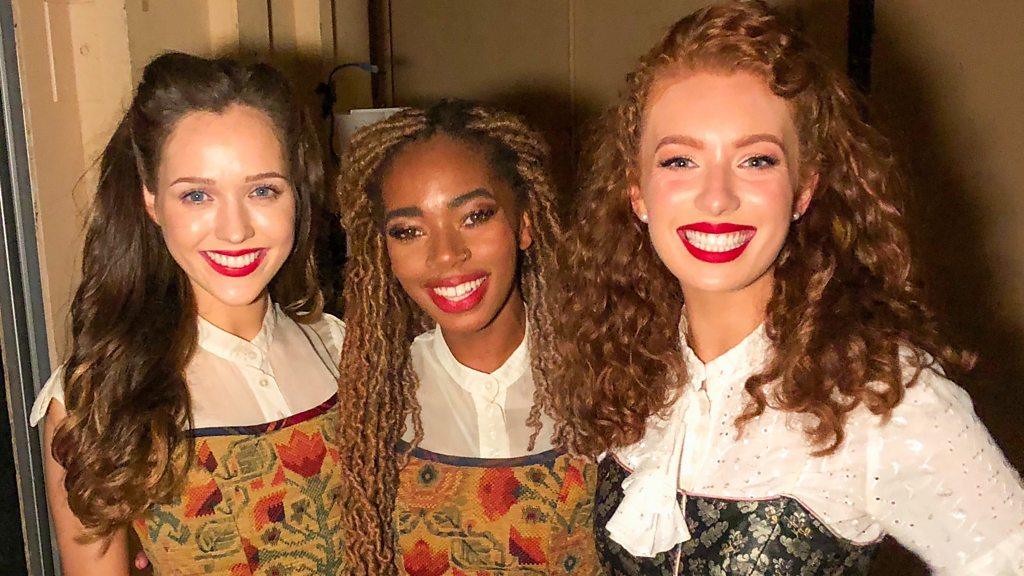
- Published18 July 2020
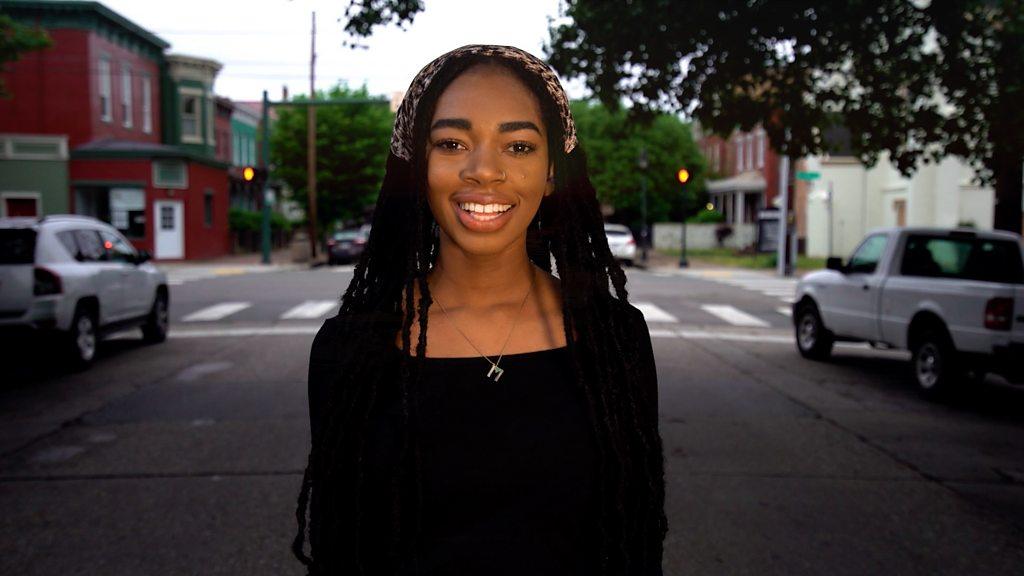
- Published9 April 2017
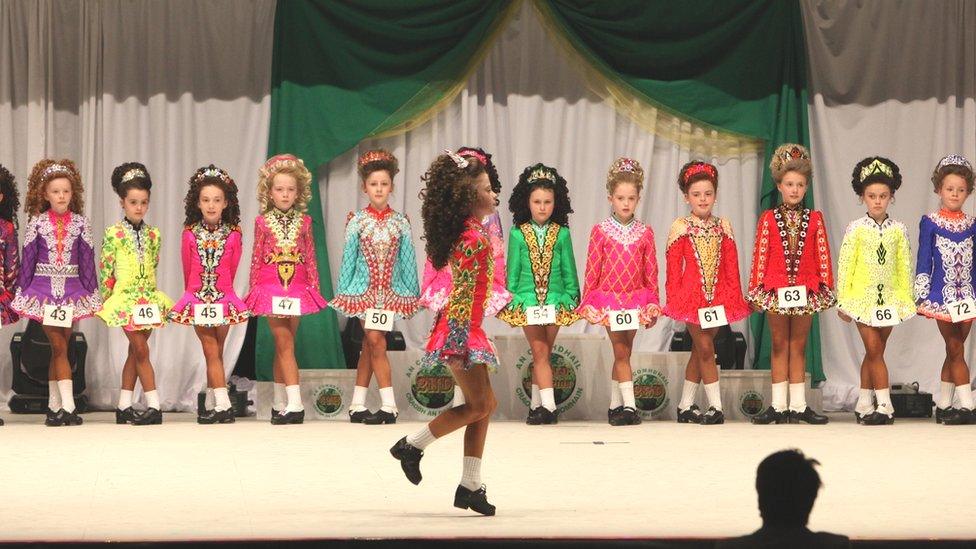
- Published3 May 2016
